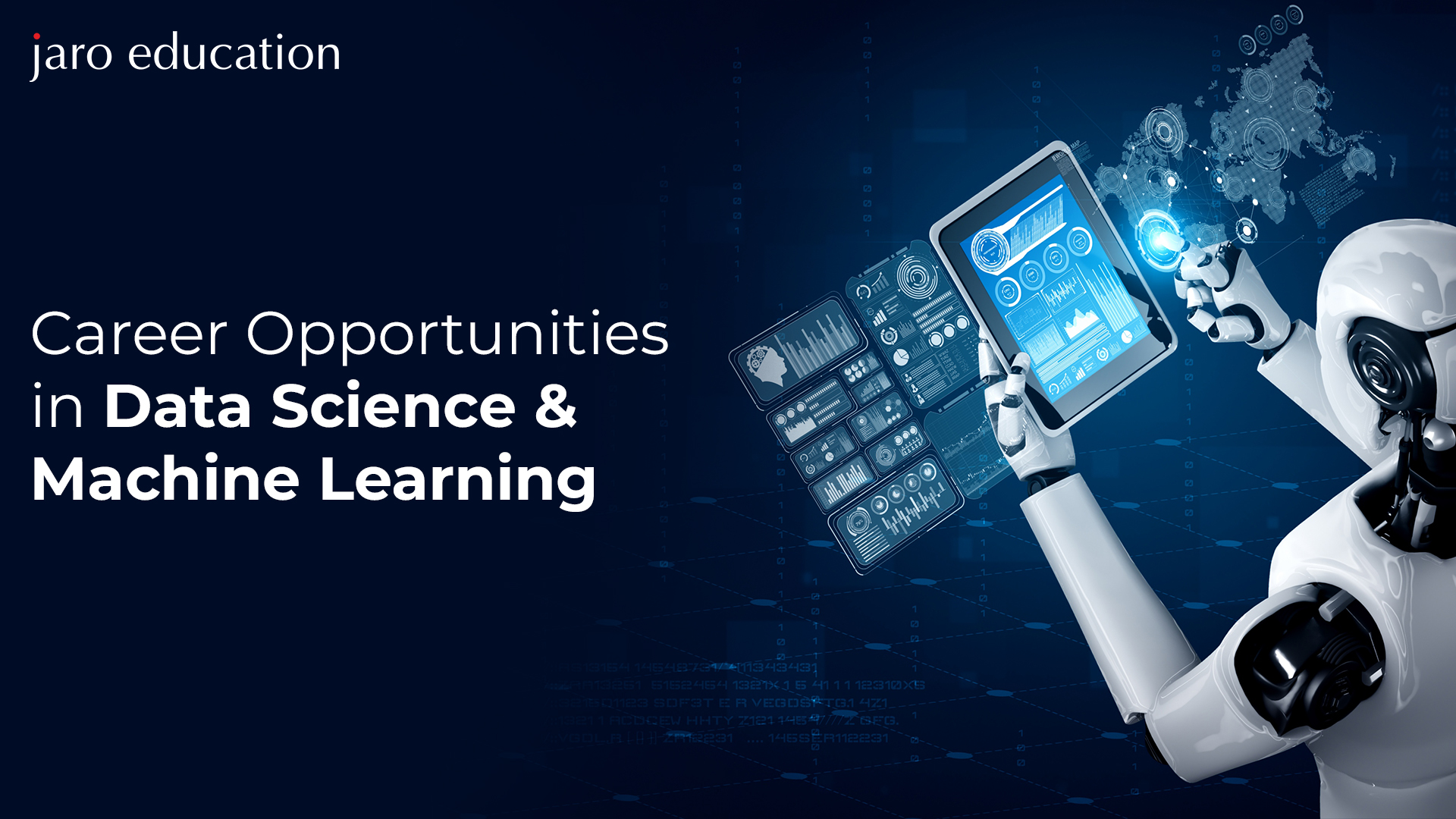Data Science is used to solve complex problems, make important decisions, and develop new products and services. Data Science is an interdisciplinary field of study that involves extracting knowledge from large datasets and the development of intelligent systems that can be used to make predictions and decisions. It combines multiple disciplines, such as statistics, machine learning, artificial intelligence, predictive analytics, and data mining.
Machine Learning is a subset of Artificial Intelligence (AI) that enables computers to learn without being explicitly programmed. It uses large amounts of data and algorithms to identify patterns and generate insights. Machine Learning algorithms can be applied to solve a wide range of problems, such as fraud detection, image recognition, natural language processing, and robotics.
Data science and machine learning are two of the most exciting and in-demand fields today. With the exponential data growth, businesses are increasingly looking for talented professionals who can analyse and interpret data to extract valuable insights. In this blog post, we will discuss career opportunities in data science and machine learning.
1. Data Scientist:
Data Scientists analyse large amounts of data to identify patterns and trends and develop insights and recommendations. They use their knowledge of data analysis, statistics, and computer science knowledge to extract useful information from data. They create strategies to improve the accuracy and efficiency of data-driven decisions. Data Scientists have strong communication skills and the ability to collaborate with other departments.
2. Machine Learning Engineer:
A Machine Learning Engineer is a computer scientist who applies Machine Learning techniques to develop computer systems that can learn from data. They are responsible for developing algorithms, building models, and deploying them in a production environment. They may also need to build software that allows users to interact with the models.
3. Artificial Intelligence Researcher:
An Artificial Intelligence (AI) researcher works to develop and improve the capabilities of machines and computer systems to solve complex tasks. AI researchers are responsible for designing algorithms, software, and techniques that enable machines to think, reason, and learn like humans. This field is highly interdisciplinary and requires expertise in mathematics, computer programming, robotics, psychology, and neuroscience. AI researchers often collaborate with computer scientists, mathematicians, and engineers to develop new methods and technologies. They may also work with experts in other fields, such as economics and business, to apply AI to new areas. AI researchers must also stay current on the latest advances in the field and be able to identify new opportunities and challenges quickly.
4. Data Analyst:
The role of a data analyst is to collect, organise, analyse, interpret, and present data. They use data to identify trends, develop insights, and support decision-making. Data analysts are adept at using various computer software, such as Microsoft Excel, to generate reports and create visualisations of data. They also use SQL and other programming languages to access and manipulate data. Data analysts must be highly organised and detail-oriented, as their work involves a great deal of accuracy. They must also have strong communication and problem-solving skills in order to interpret the data and present their findings effectively.
5. Business Intelligence Analyst:
A Business Intelligence Analyst is a professional responsible for analysing data and providing insights to help improve a business’s decision-making process. The role involves collecting, analysing, and interpreting data to gain insights into business performance, customer behaviour, industry trends, and other areas. The Business Intelligence Analyst will also be responsible for creating reports and presentations to share their findings with management and other stakeholders. Additionally, they must have a strong understanding of both data processing and data visualisation tools.
6. Big Data Engineer:
A Big Data Engineer is tasked with creating and managing a company’s Big Data infrastructure and analytics platform. This includes designing, developing, and maintaining large and complex data systems, such as data warehouses, data marts, and data lakes. They are also responsible for creating and managing the ETL (Extract, Transform, Load) processes and creating and maintaining the data pipelines. Big Data Engineers must be skilled in programming languages such as Java, Python, and Scala, as well as have a strong background in databases and data warehousing. They must also have a good understanding of Big Data technologies such as Hadoop, Spark, and NoSQL. In addition, they must have a good understanding of business intelligence and analytics and be able to create reports and dashboards to help their organisation gain valuable insights from their data.
7. Data Engineer:
A Data Engineer is responsible for building and maintaining data infrastructure and pipelines and ensuring data accuracy and integrity. They analyse and process large datasets and create data models to store and access data. They also design and develop databases, such as relational databases, NoSQL databases, and data warehouses. They also use data analytics tools to extract, transform, and load data into databases. Additionally, they develop scripts and algorithms to automate processes. They use various programming languages, such as Python, SQL, Java, and Scala. They also monitor system performance and scalability and optimise data architectures.
The Advanced Professional Certification Programme in Cybersecurity and Ethical Hacking from E&ICT, IIT Guwahati, is taught by the best IIT faculty in the country. The course is designed to provide you with the latest techniques and tools to protect your digital assets from malicious cyber-attacks. You will learn about the latest methods of penetration testing, digital forensics, malware analysis, and more. The programme offers hands-on experience with real-world scenarios and case studies. You will have the opportunity to practice what you have learned in the course and gain practical skills. The course also provides you with industry connections. You will have the opportunity to network with experienced professionals from the field and learn from their experiences.
Conclusion:
Data Science and Machine Learning have revolutionised the way we process and analyse data. With advancements in artificial intelligence, deep learning, and other technologies, we can now create models and algorithms that enable us to understand data better and make more accurate predictions. Data Science and Machine Learning have also opened up new avenues for businesses to leverage their data and make better decisions. As technology continues to evolve and become more accessible, the potential for data science and machine learning to make an impact on the world is vast and exciting.







2 thoughts on “Career Opportunities in Data Science & Machine Learning”
Great article! The insights into career opportunities in data science and machine learning are valuable for anyone entering the field.
Your kind words are much appreciated! We are glad you found the content valuable and interesting. You can access more such informative blogs on our website.